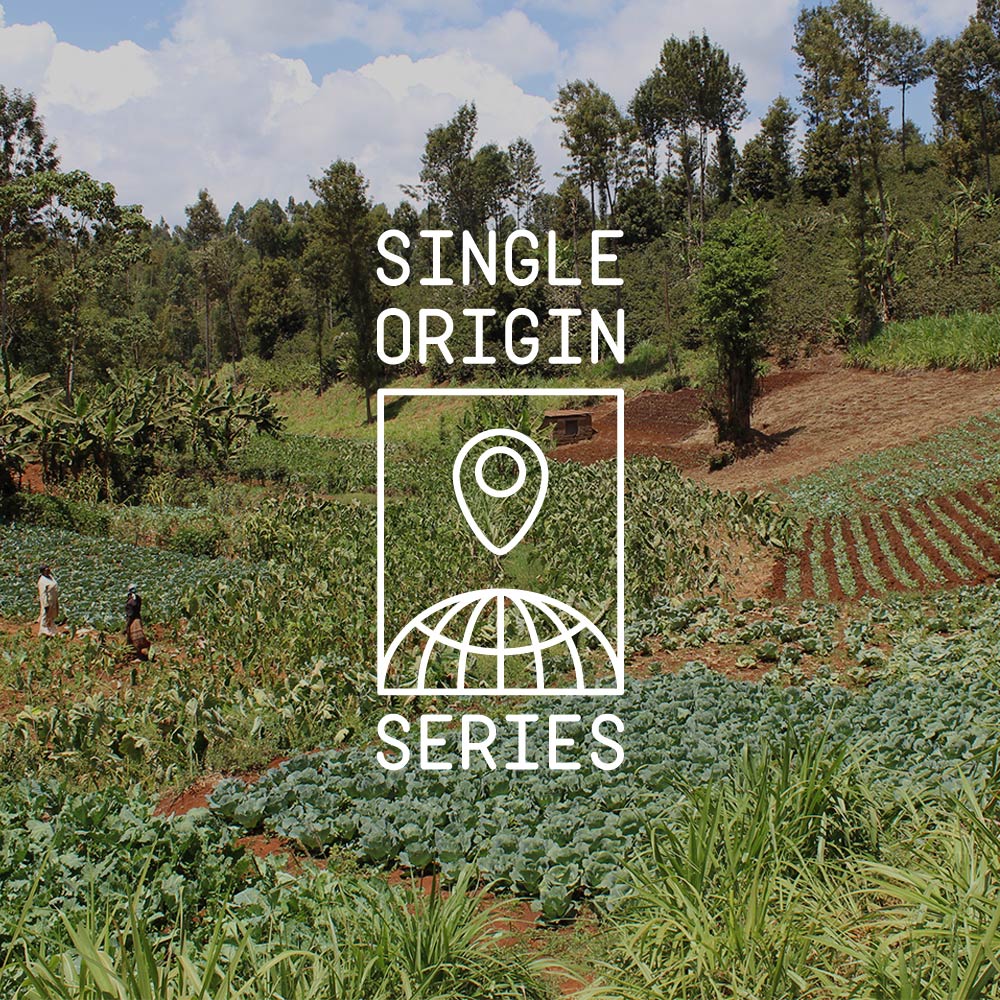In celebration of Earth Month, Lisa Prange, our VP of Marketing, sat down with Sightglass Director of Coffee Operations Joseph Towery to talk about the deep connection between coffee and the planet that grows it. From the soil that nourishes each cherry to the hands that carefully harvest them, Joseph shares how sustainability, quality, and care are woven into every step of the process—and why honoring that connection matters.
Lisa Prange: There was one point when you told me that when you enjoy your coffee, you can thank the earth that provided it. Can you tell me more?
Joseph Towery: I think as people who work with an agricultural product, there's no way for us to truly take full credit for the result. We're all just one piece of what makes it great. And that greatness starts with the farmer—what the farmer did growing that plant, taking care of their property and their farm.
Soil care is a huge part of what makes all agricultural products great. We can exhaust the soil of nutrients and then keep trying to grow coffee, but eventually, trouble will start to happen, and the product quality will suffer. It's old knowledge: cycling crops and replenishing nutrients into the earth makes everything you grow out of that soil better.
We can’t separate ourselves from this aspect of what we do every day—roasting coffee, making coffee, bringing great products to our customers. We can't separate that process from where the coffee came from. It came from the earth. It started in the dirt, and it came from many miles away, in another part of the world that not many of us will probably ever step foot in. And we have to keep that link.
It's important that we always continue to infuse that part of the supply chain into an acknowledgment of how we get great products.
As a roaster, if you give me great coffee—coffee that was grown amazingly and is inherently great—I can still mess it up. I can mess it up five different ways. But if you give me a bad one, I can never make it good. So it's really ingrained in you as a roaster. It’s in what we do every day. We’re always sculpting, massaging, tweaking how we roast. We’re constantly adjusting our approach to keep the coffee tasting good, because it's changing on us every day. It's losing moisture, and we have to keep up with that transition. When you're roasting coffee, you're chasing a line that's running away from you. You have to pay close attention, because the coffee showed up to us beautifully.
As an agricultural product, the most significant part of a coffee’s life was just its growth. It was a cherry on a bush, in the dirt, in a country, on a farmer’s property. Coffee doesn’t go through a lot of hands. Despite the many miles, we’re actually quite close to the origin of our product. We know the names of the farmers, we know the locations of the farms or the cooperatives or the washing stations—and that shrinks the distance. We're close to the earth it grows in. That value of the earth has got to live with you.
As a roaster, you have to know the details: where this coffee comes from, the altitude, the variety of coffee, why that variety grows well in that place. There are all these little pieces of the puzzle that you’re calculating for when you roast. So, I don’t think you can ever really divorce yourself from the farm.
Lisa Prange: What does it take, from an agricultural perspective, to get good coffee?
Joseph Towery: In great part, we’re subject to the fancies of Mother Nature. In some cases, it's rain, it's sunshine, it's shade. Shade-grown coffee can enhance quality. With factors like these, there's nothing the farmer could necessarily control. What comes their way is going to come their way. There's a stage here that’s just… we thank the gods. The sun shined on us, and we're blessed.
Then we move into the next stage—harvesting—and that's probably the first part of the process with a real human touch. This is where choices can truly impact quality. The first step is harvesting on time. Great coffee starts with ripe cherry. And there are economic influences that might encourage or discourage a farmer from being able to do that correctly.
We have to work with farmers who value selling us top-quality lots. This means they pay for pickers to come back multiple times if necessary so that each time, only the ripe cherries come off the vine. If it’s one and done, and they just pick everything, then it’s going to be a mixture—and the quality goes down.
It’s a combination of luck and good decisions that drive quality.
Lisa Prange: We talk a lot about soil health being pivotal to what a farmer can grow—and the role that it plays in climate change. Can you talk about how Sightglass plays into that?
Joseph Towery: If you don’t take care of the land you’re planning to build your livelihood on, you’re destined to fail. And for many farmers, that’s a disaster. So it’s inherently required that they care.
But beyond the basics, there are economic incentives. What else could you invest in? Could you afford different equipment that helps your soil? If Sightglass is offering a higher price, maybe you can invest more into your farm—into upgrading your grow site.
Then there are incentives like the higher prices that farmers can earn from being Certified Organic. Whatever path they choose, it always goes hand in hand with the care the farmers provide.
At Sightglass, we find that quality, economic sustainability, and soil health go together in a cycle that affords us something excellent. We're paying top prices for that quality, and the farmer is further incentivized to keep doing the good work. And of course, being organic is good for the soil, good for the farmers, and good for the community at large.
Lisa Prange: Is it fair to say that Sightglass is buying into a virtuous cycle—where we incentivize farmers to grow high-quality coffee, and in return, our investments allow them to take better care of their soil so they can keep producing it?
Joseph Towery: Yeah. Anybody can buy coffee, roast it, sell it, and put a cool company name on it. But if that’s all it takes, then there's not a lot of reason to pick one bag over another.
What sets Sightglass apart is that we know our farmers. We pursue a supply chain built on the idea of quality and sustainability—not just for the earth, but because we know economic sustainability is also essential for our partners to keep doing good work.
We're paying more for quality because we believe it results in a better product—something that helps us create our premium coffee. It's a long-held philosophy at Sightglass that the rubber has to hit the road. That means every step—from cherry to latte—is anchored in values that raise the bar and envision a better cup of coffee.
If that cup of coffee is truly better, then it’s better for the customer. It’s better quality at the sourcing level. It’s better for the earth. It’s better for the farmer. It’s economically sustainable. Everything is better—and only then can we say we’re worth our customer’s time and money.







